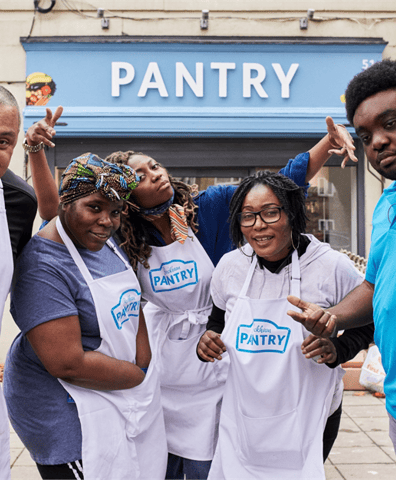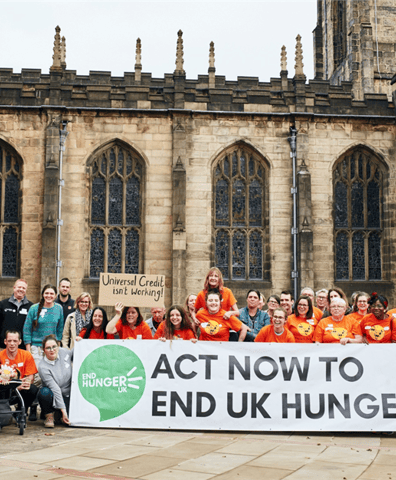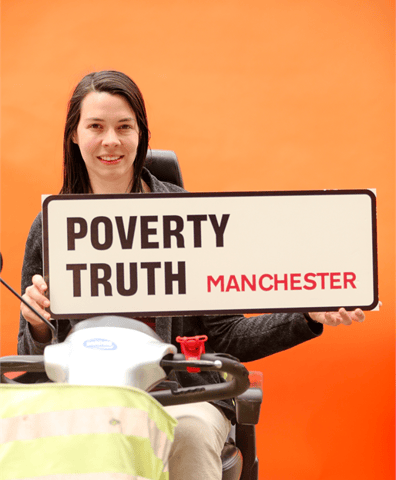About us
Who we are
Church Action on Poverty's vision is that the UK can and must be transformed into a country where everyone can live a full life, free from poverty. Poverty robs people of dignity, freedom, and hope, of power over their own lives. We believe that our vision - an end to poverty in the UK - can become a reality.
Our 5-10 year goal is to work with a broad range of partners, people and communities struggling against poverty to build a powerful social movement to reclaim dignity, agency, and power together.
Our programmes all contribute to this vision and goal, supporting a variety of forms of collective social action from Local member-run Pantries and Self-Reliant Groups, through to Poverty Truth Commissions, a national Speaking Truth to Power programme and an annual Challenge Poverty Week in which the voice, dignity and agency of people struggling against poverty is a central element.
Equality, diversity and inclusion policy
We recognise that we live in a society in which inequality, discrimination and exclusion are a reality and we seek to be an organisation that challenges rather than perpetuates those wrongs. We cannot end poverty without taking account of the ways in which poverty and other forms of discrimination and exclusion intersect and without challenging oppression.
● Church Action on Poverty seeks to treat every individual and community with dignity, and to work at every opportunity to build agency and power together. We seek to recognise and celebrate everyone's uniqueness, and to listen to their stories.
● We believe that the more diverse voices are heard in our organisation, the better we will be. We want to develop policies and approaches to EDI in conversation with those who bring expertise by experience.
● We value the diversity that a wide range of people brings and we are
committed to increase that diversity in our organisation and amongst the groups with
whom we work.
● We will go beyond legal requirements and seek ways to increase
diversity and inclusivity in our organisation and amongst our partners and members.
We will expand both on the language used in law, by for eg recognising ethnicity and nationality as well as race; and going beyond the 9 Protected Characteristics of the Equality Act 2010 to seek to eliminate discrimination on other grounds such as social class, place of residence, education, caring responsibilities, physical appearance or experience of the criminal justice system.
● We are committed to increasing our understanding of neurodiversity, mental and
physical health with the help of experts by experience and insights from biopsychosocial models of disability (an approach which takes account of biological, social and psychological factors) so that we can make necessary accommodations to support the flourishing of our staff, partners and members.
● We are committed to review this policy regularly, and to do so listening to and in
conversation with those who have lived experience in this area as well as learning from good practice and expertise. We will evaluate our progress against this policy at least annually.









